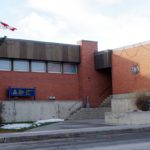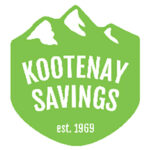Home »

B.C. sets single-use plastic requirements
A new provincial regulation will expand B.C.’s efforts to tackle hard-to-recycle single-use and plastic items.
The Single-Use and Plastic Waste Prevention Regulation will cover shopping bags, disposable food service accessories, oxo-degradable plastics and food service packaging made of polystyrene foam, PVC, PVDC, compostable or biodegradable plastics, the Ministry of Environment and Climate Change Strategy reported.
The requirements will start to come into force in December 2023. This will give six months to educate the public and businesses about the new requirements, and allow time for businesses to use up existing inventory, the ministry suggested.
“As part of our government’s CleanBC Plastics Action Plan, the regulation strengthens our efforts to prevent plastic waste and pollution, and ensure a better future for the people of B.C. through a healthier environment,” said George Heyman, Minister of Environment and Climate Change Strategy.
“Focusing on hard-to-recycle single-use and plastic items will help move B.C. to a circular economy where waste and pollution are eliminated, products and materials are kept in the economy through re-use, and natural systems are regenerated.”
Since the province launched the CleanBC Action Plan in 2019, 21 municipalities have established bylaws to limit single-use plastics in their communities.
The federal government is also regulating single-use plastics that are harmful to the environment. In December 2022, the manufacturing and importing of six plastic items were prohibited (plastic checkout bags, drinking straws, cutlery, stir sticks, ring carriers and food-service ware made from plastics). Sales of these items will be banned as of Dec. 20, 2023.
B.C.’s regulation improves on these measures to limit the use of many single-use items, promote reusables and eliminate the use of additional items.
Over their life cycle, reusable products generally produce fewer emissions, consume less water, and decrease waste, litter and pollution compared to disposable alternatives.
“Reducing our consumption of fossil fuel-based single-use products is imperative to human and planetary health. Recycling is important, but we need to prevent plastic from becoming waste in the first place. Regulating single-use and plastic items provinc-ewide, and harmonizing that regulation with those of senior government, will help B.C. evolve to a more circular economy,” said Lyndsay Poaps, executive director of Recycling Council of British Columbia.
e-KNOW file photo
e-KNOW







